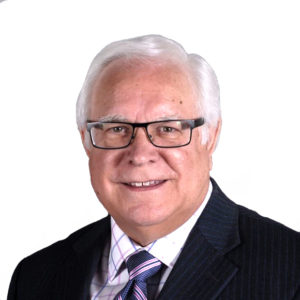By J. Mark Jordan
People who live and work in community must follow prescribed codes of behavior in order to enjoy peaceful, orderly lives. One can imagine the chaos that would result if everyone ignored the law, or if no laws existed at all. But, beyond the law, a higher realm exists that we call ethics. Ethical behavior defines a level of association more stringent than even the law requires in which members commit to certain standards considered to be virtuous and excellent.
When the United Pentecostal Church International was formed, the founders adopted a code of ethics to elevate, guide, and govern the behavior of its ministers. Nearly all subsequent provisions and organizational rules added to the Manual grow out of some aspect of ministerial ethics. As society changes, we must continually revisit our established ministerial ethics to address new perceptions and new realities. In these articles, we will review the ethical positions of the position paper “Ethics (Ministerial)” in the UPCI Manual in an attempt to define the original intent and to understand how our fundamental ethics relate to the world in the twenty-first century.
I will, with my resignation, sever my pastoral relations with any former parishioner and will not make pastoral contacts in the field of another pastor without his or her knowledge and consent. Resigning a pastorate is as critical as accepting the role in the first place. If done in an unethical manner, resigning a church can become a source of grief for the incoming pastor. Resignation may end the formal leadership role and the pastor/parishioner relationship, but it does not automatically end the relationships that have formed over the years. Friends, relatives, business partners, and shared commitments with individuals may not be easily broken.
First, the incumbent pastor must recognize that he or she has the advantage of knowing the congregation and the history of individuals. With the resignation, this pastor must sever both formal and informal ties. All invitations to visit the sick, perform marriages or funerals, or conduct any other pastoral function must only be done with the knowledge and consent of the new pastor. This gives the new pastor the freedom to lead without interference from a former pastor.
In instances where the outgoing pastor has relatives in the congregation or has other associations that cannot easily be terminated, full disclosure must be made before the new pastor accepts the position. At no time should the outgoing pastor interfere with or contradict the leadership of the new pastor. If a genuine concern arises, especially concerning doctrine, morality, Apostolic identity, or other serious matters, the channels of organizational authority must be followed.
Second, the outgoing pastor must respect the field of labor that now belongs to the incoming pastor. Ethical behavior prohibits the former pastor from planting another church in close proximity to his former church. Whenever there is a question in this regard, the bylaws of the district in which the church resides govern such a move. The rule of thumb is that no action should be taken that will cause harm or confusion to the existing congregation.
In summary, here are some specific guidelines that apply to outgoing pastors:
• Do not attempt to pastor people in a congregation you have resigned.
• Kindly inform former parishioners that ethics prohibit you from counseling them.
• If a parishioner volunteers information to you, either ignore it or inform the new pastor.
• Never lead people to believe the new pastor is disrupting their friendship with you.
• Direct all pastoral questions to the new pastor.
• Do not critique or judge the leadership style of the new pastor to members.
• Always get the consent of the new pastor if contact with a parishioner is necessary.
• Voice concerns only to organizational leaders.
Finally, resignations should be done properly, deliberately, and honorably. No one should simply walk out and leave everything behind. The congregation should be informed of a pastor’s intention to leave and have the opportunity to select the next pastor. The church should not be left with unanswered financial or legal questions. District officials should be notified and have an opportunity to provide counsel to the congregation.
Following these guidelines will reduce tension and anxiety caused by changes in leadership. These guidelines also help ensure the integrity of the organization and maintain the highest level of respect between pastors and between church congregations. The goal of our organization is to strengthen the unity of our ministers and to preserve the congregations that are affiliated with the United Pentecostal Church International.
J. Mark Jordan is the Bishop of First Apostolic Church in Toledo, Ohio, former superintendent of the Ohio District, a member of the Board of Publication, and a member of Urshan Graduate School of Theology Board of Trustees.




This is a very timely article in light of the chaos that results when an outgoing pastor and his family refuse to sever their ties with his former congregation. Those who arrogantly and selfishly continue to maintain contact with their former congregants sew discord and tear down their own work in the Kingdom of God.
While District officials can take remedial action, the damage that is done to the affected saints is sometimes irreparable.